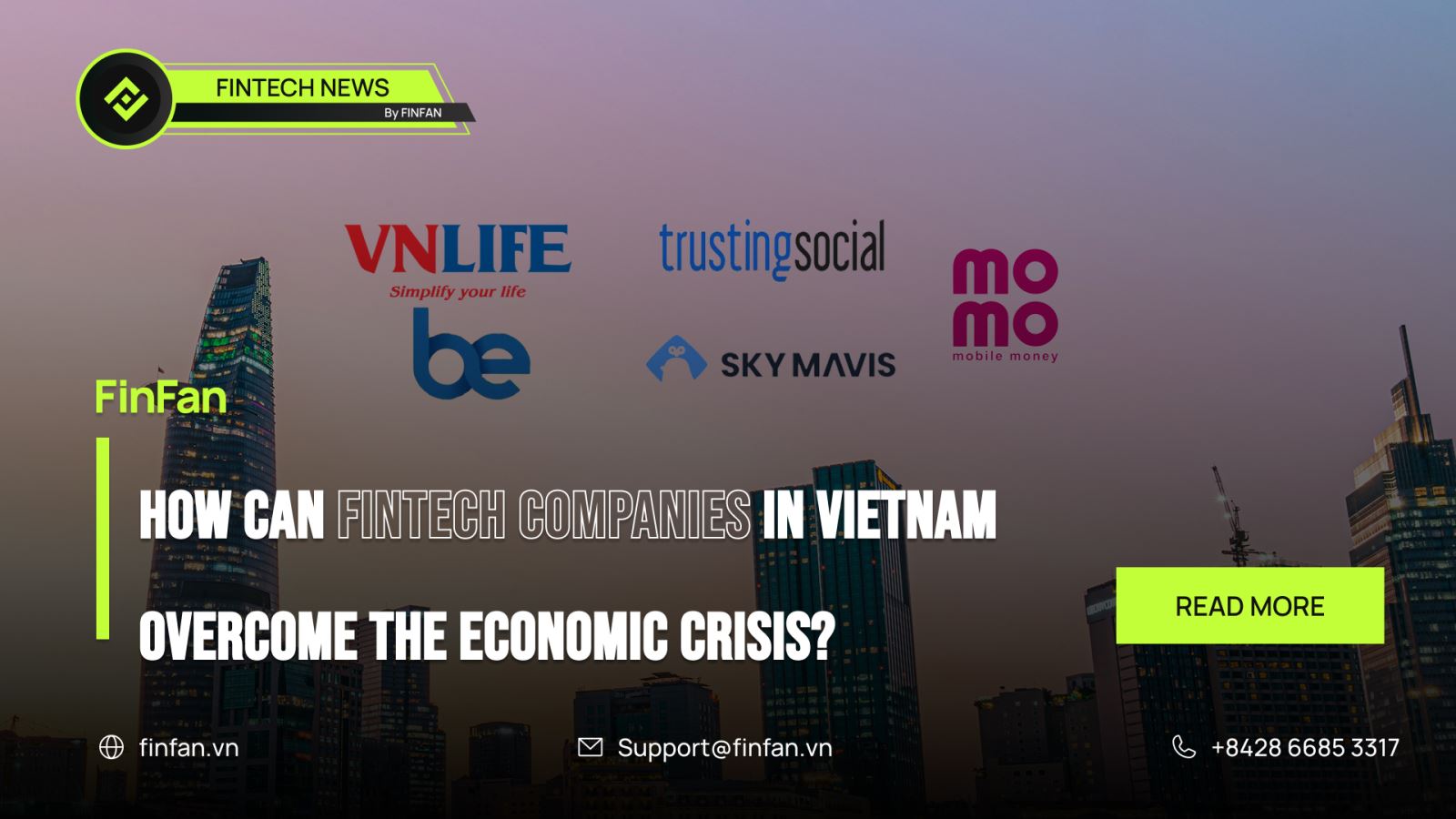Fintech in Vietnam – How can fintech companies overcome the economic crisis?

In 2022, when the US started an economic crisis, shown by the Fed's continuous increase in interest rates, it has been close to 5% so far. This crisis has spread and is getting closer and closer to Asian countries (Vietnam is one of them).
How does this affect Vietnam's fintech industry? Let's find out with FinFan.
The current situation of fintech companies in Vietnam
In the current market economic downturn, a few fintech companies have been growing rapidly to become the unicorn of not only Vietnam but also Southeast Asia.
Moreover, they also receive large investments from leading corporations in the technology investment world such as SoftBank and Bank of Japan Mizuho through deals of MoMo and VNPay wallet.
It shows that with the companies exploiting the modern technology of the future (especially fintech), the big players in the investment world are still very interested and ready to spend money to own those companies.
And reality did not disappoint them when these companies are still growing in the market and proving their effectiveness when bringing the most optimal payment solutions to the market.
Currently, users just need to sit at home with a few mouse clicks to be able to pay for services related to their own and their family's life such as paying electricity, water, school fees for their children, apartment expenses, and some other expenses, etc.
Technology is also applied in some other areas of fintech such as banking (especially digital banks and NEOBanks).
Since the success of Timo, traditional banks have started implementing blood-changing activities and also started their digital transformation journey. Since then, customers using banking services have had a better experience when everything has gradually changed.
Regarding the transfer and receipt of money from abroad to Vietnam, a number of businesses with the orientation of being international NEOBanks have been doing very well in this task when they have linked with international businesses and provided API systems for them as well as banks and ewallets in Vietnam so that the money can be transferred quickly and at the least cost to consumers.
In particular, with this combination, sometimes customers also receive attractive incentives from both international businesses and domestic ewallets.
As is the case with the Zalo Pay ewallet in the Vietnamese market, they are sending the recipients the method of transferring money from abroad to Vietnam through their wallet up to 300,000 VND to make payment for all services.
How can fintech companies in Vietnam overcome this difficult period?
Despite this development, fintech companies are still not out of the crisis brought about by the economic downturn.
The reduced purchasing power makes it impossible for the service providers with whom these companies cooperate, as well as the digital banks, to increase their revenue.
However, with their unremitting efforts, fintech companies have been having strong marketing campaigns to attract users and that has been proven through the acceptance of big investors in the world investing in these fintech companies and making them becoming unicorns of Southeast Asia.
Finally, fintech companies have had success in attracting users (a prerequisite for a technology company to grow). At the same time, the fintech industry is a current and future trend, it will achieve even better milestones through the digital transformation of some traditional financial industries.
Especially, the appearance of cryptocurrencies has made this industry more and more modern and more advantageous in the hearts of their potential customers, not only in the present but also in the future for many years to come when Gen Z and Gen Alpha will flourish.